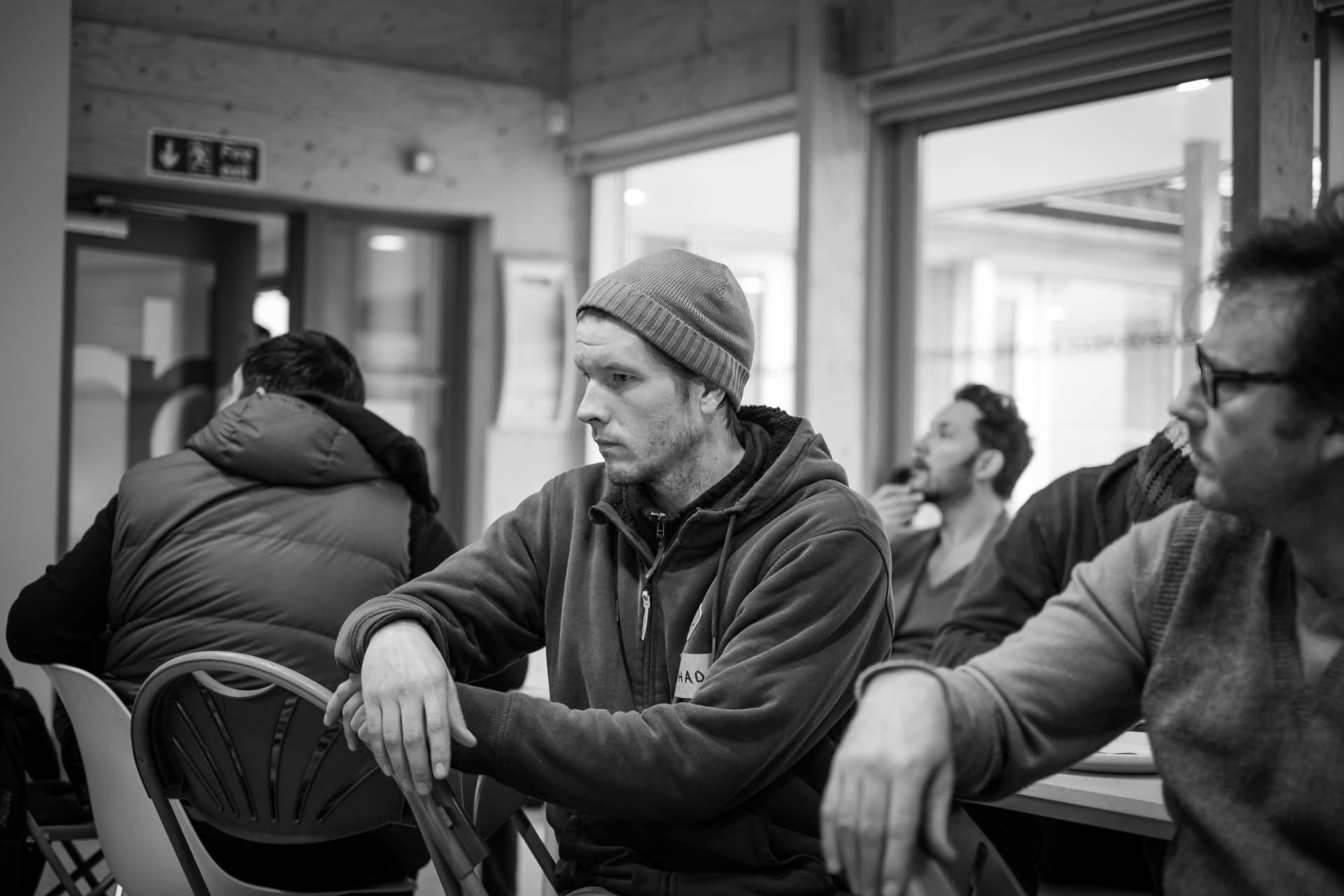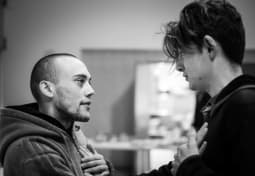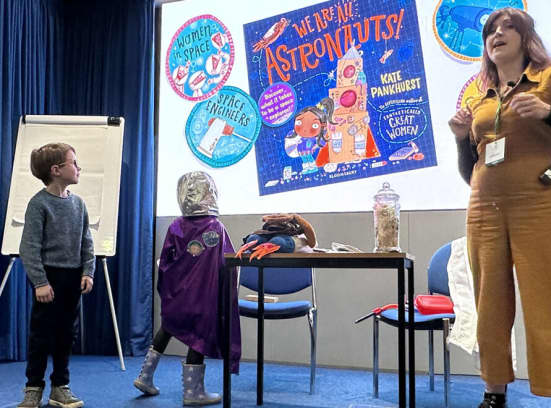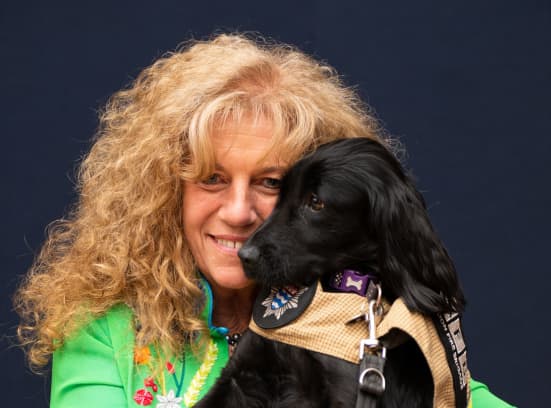A Band of Brothers is a fast growing, community-based organisation established ten years ago, seeking to improve the lives of young men who are in crisis, by providing them with mentoring and support. Oxford is one of the 14 places in the UK where it operates. Bernard Auton, a mentor within the voluntary group, tells us where the charity started and where it’s heading, while giving us some insight into the process behind the rehabilitation of these young men.
A Band of Brothers started off as a men’s group who wanted to be a little less self-serving and provide more to their community. They identified an issue which was that a significant number of young men seem to lack positive male role models and as a result they were getting involved in all sorts of things which weren’t good for them. We started work ten years ago in Brighton, at which point, our major sponsor and supporter was initially the probation service, so we were working with young men who were coming out of prison having served youth or custodial sentences. We were helping them to articulate a better narrative of their lives, examine why they were there and reflect on what had brought them to that point. All these young men were prepared to take a risk to learn more about themselves, and do something different.
We take the young men away for a weekend in nature, using outdoor pursuit centres and other locations to isolate them from what might be called their ‘normal’ society. We’re not going to the Serengeti, but we’re certainly going out in the woods and for some of the young men who are with us, they haven’t had the experience of being outdoors in the wild. We don’t have any mobile phone connections, no internet, and no clocks! We spend the weekend with them understanding the story of their lives and trying to help them articulate why they think they’re there, what they’d like to do differently, where they’d like to go and what support they might need. During this weekend, the young men choose a mentor. It’s important that we don’t assign a young man to a mentor; it’s their choice that they decide which older man they would like to work with. They then meet with their mentor one-on-one, on a weekly basis in a coffee bar or somewhere neutral, for the following 12 weeks, and talk. We have a number of topics which we raise for them during – what we refer to as – the Quest Cycle that help to stimulate those conversations.
On Thursday evenings they are also encouraged to come along and join in with the Oxford Circle. We call ourselves that because we meet and sit in a circle. Every man gets the opportunity to talk, and everyone is going to listen to him without interruption. That’s the methodology we use and it becomes empowering to be listened to for the first time without judgement, being able to share your feelings without being taken advantage of, to be vulnerable and to see other men – many of whom are older and have more experience than you – also sharing their vulnerability.
In that process, they learn that they’re not the only person in their situation. Very often, someone will tell a story or share an experience and at least one other person in the circle goes, ‘Hey, I know exactly how that feels because it happened to me!’ That might not even be the young men, it might be the older men who are there to mentor. We are sharing our own experiences, we’re not teaching them how they’re supposed to work, we’re not there to read out of a textbook, we’re reading from our own lives.
During their Quest, they also have two community days where we collectively go and provide service to other parts of our community. We paint in village halls, we work on allotments, we’ve done path clearance on the bridleways and towpaths. We do all sorts of different community projects and also spend another day out in nature.
We celebrate their completion of their Quest for Community with a ‘Homecoming’ celebration. They get to invite family, friends and other organisations who’ve sponsored them, to come and join us. The young men then come back into our community as inducted men.
What we’re trying to replicate is a rite of passage that many traditional societies have for men as they move from adolescence to adulthood. We try to provide a very clear threshold that they pass through as they go from being a young man to an older man, and take on those responsibilities, accountabilities, behaviours and commitments. These young men are then able to join our circle as a man of Oxford or a man of one of the 14 other circles that we have in the UK, and they have the opportunity to train as a mentor and then in turn, mentor other men who come into the circle.
Our role is primarily to help young men with what they need to do in life. One of the things which is often the case is they are looking for employment, and if they have a criminal record or they’ve been in the juvenile justice system, that can be more challenging. Although it isn’t our primary objective, through our own personal networks, we do seek to encourage them into employment and find them opportunities. One of the ways we do this is, for every week that a young man attends his mentoring, for every community event he participates in, he gets rewarded by what we call a Forward Fund. At the end of his homecoming, a young man who’s participated fully in that programme will have a Forward Fund of about £250 which he is then able to invest in something which helps to move him forward. The money never goes to the man himself; we invest that money in the things that he’s looking for to make something happen. Previous examples of this have been a young man who bought some tools for a landscaping business, a young man who wanted to take driving lessons, or a young man who wanted a suit for an interview.
There are 14 circles around the UK and we’re growing. We have around 1,000 members and 249 young men have so far been through our rite of passage, and of those, 80% who have come from the criminal justice system have not reoffended within three years of working with us. We run two cycles a year because it lasts around 13 weeks. Our next cycle in Oxford is going to start on the first weekend in May, but we want to use the time between now and then to talk to organisations who might introduce us to young men.
Some men do refer themselves based on information they receive by reading an article like this one, but we also might be introduced to them through organisations who are supporting them. We work with various organisations such as Oxfordshire Youth, Response and TRAX. We want to build a relationship with similar organisations and tell them about the work we do. We will have introductory evenings where we invite the public to come in and find out a bit more about what we do.
We also seek to recruit older men to our circle who want to mentor young men, and when we do, we put them through exactly the same Quest for Community. When you sit down opposite a young man to mentor him, you have a life experience which might be very different from his. But the one thing you can have in common, is that you both went through the same rite of passage. That provides a bridge between you which you can cross and discover that you have a lot more in common with than you thought. Assumptions are too often made about each other based on race, religion, sexuality, age, address, education – all sorts of things that we use to put people into boxes, which very often can become a barrier to finding out about each other in a more genuine way.
I think the Oxford circle is in a really good position to provide support at the beginning of 2020. Our ambition is to have around 20 young men complete their Quest for Community and graduate at their Homecoming. 20 in 2020! One of the things that I'm also very encouraged about, is when I speak to organisations, and individuals, what we offer really resonates. There's a real hunger in our communities to provide a more positive outlook for these young men.
abandofbrothers.org.uk









